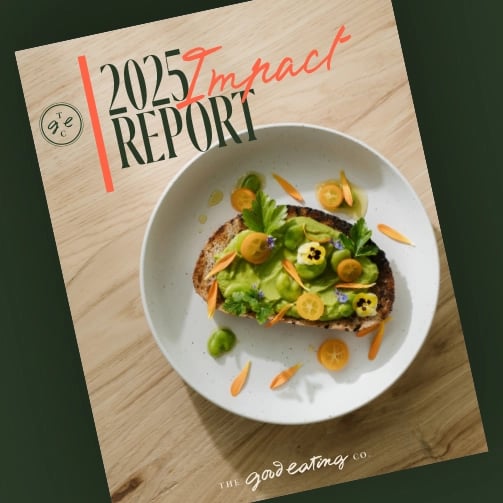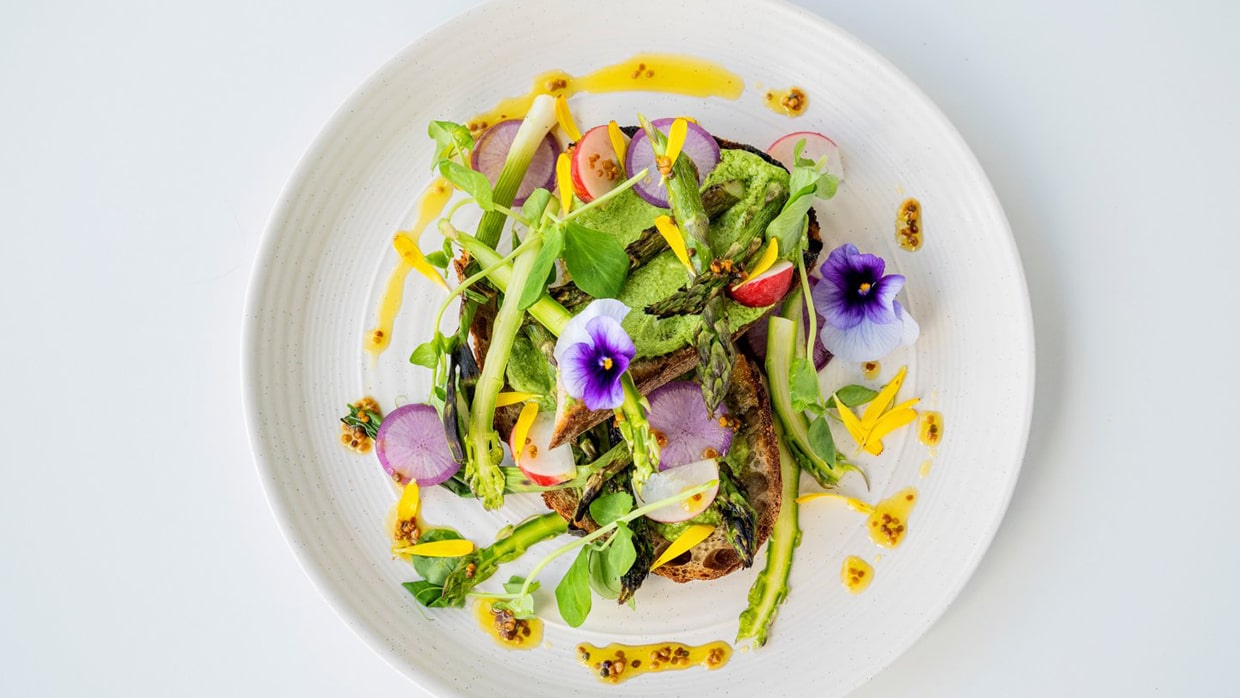Putting the “Good” in The Good Eating Company

2025 Sustainability Impact Report
At The Good Eating Company, we believe sustainability is most powerful when it’s part of the everyday — woven into how we source, cook and serve. That’s why we’re proud to share our 2025 Impact Report, a reflection of how small, thoughtful choices add up to big results.
This year, we built on the foundation of past successes and pushed further to create food experiences that nourish people while protecting the planet. From reducing plastic and food waste to expanding community impact, our 2024 initiatives demonstrate what’s possible when hospitality meets responsibility.
Key achievements include:
- Cutting food waste by over 42% across our kitchens — preventing 96 tons of surplus food from going to waste.
- Expanding our “Death to Plastic” initiative, eliminating plastic beverage containers in select locations and reducing reliance on single-use bottles overall.
- Donating 17,475 meals through food rescue partners like Food Connect, Food Rescue US, and Chefs to End Hunger.
- Increasing our small and diverse spend by 4.5% and exceeding our 20% target.
These milestones reflect more than just numbers — they highlight our mission to reimagine dining as a force for good, from the ingredients on the plate to the communities we serve.
We invite you to explore the full report, where you’ll find the stories, data and partnerships driving our progress. Together, we’re shaping a future where every meal delivers impact: for people and for the planet.

Last Year’s Sustainability Impact Report
The 2024 report shares the outcomes of our dedicated efforts throughout 2023, highlighting the tangible impact of our initiatives. From reducing carbon emissions and minimizing waste to promoting sustainable diets and enhancing social impact, year was marked by significant strides in fostering a more sustainable and inclusive food system.